Let’s look at some of the ways low humidity can affect your health. Before we can begin, we must define some keywords and terms to better understand the issues. What is humidity? Humidity can simply be defined as the amount of moisture (water) in the air. What then is health? It is simply a state of well-being. It is commonly known that water contains an amount of air and that air also contains a certain amount of water. It is advised that you avoid air with low humidity or air that doesn’t contain enough water.
Low humidity affects our health negatively. Some of the effects are:
- It can stress the lungs
- It can cause shallow breathing (which could result in other complications)
- It can contribute to dehydration
- It can dry out your eyes
- It can increase your risk of respiratory infections
- In can increase the rate of influenza transmission
- It can cause dry skin
- It can cause eye irritation
- It can cause water loss
Stress the lungs
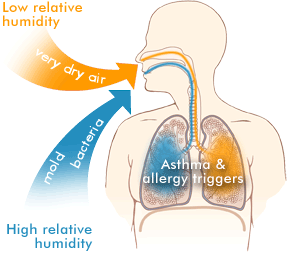
Low humidity stresses the lungs. When the air is dry, only a small amount of oxygen is contained in the air. You need oxygen to survive. When your body gets less oxygen during each breath, you must breathe deeper and heavier. Over time, this process stresses the lungs and can lead to health complications.
Eye irritation

Low humidity leads to eye irritation. People who are in areas with low humidity are prone to frequent blinking. The more often you blink, the more moisture is removed from your eyes. The dirt and dust found in areas of low humidity only make the problem worse. As you find yourself frequently rubbing your eyes, the problem worsens, and the cycle repeats.
Dehydration

Low humidity contributes to dehydration because the body is forced to use other fluids to make up for water lost in the air and atmosphere. As a result, people tend to get thirstier and drink more water in places with low humidity.
Eye dryness
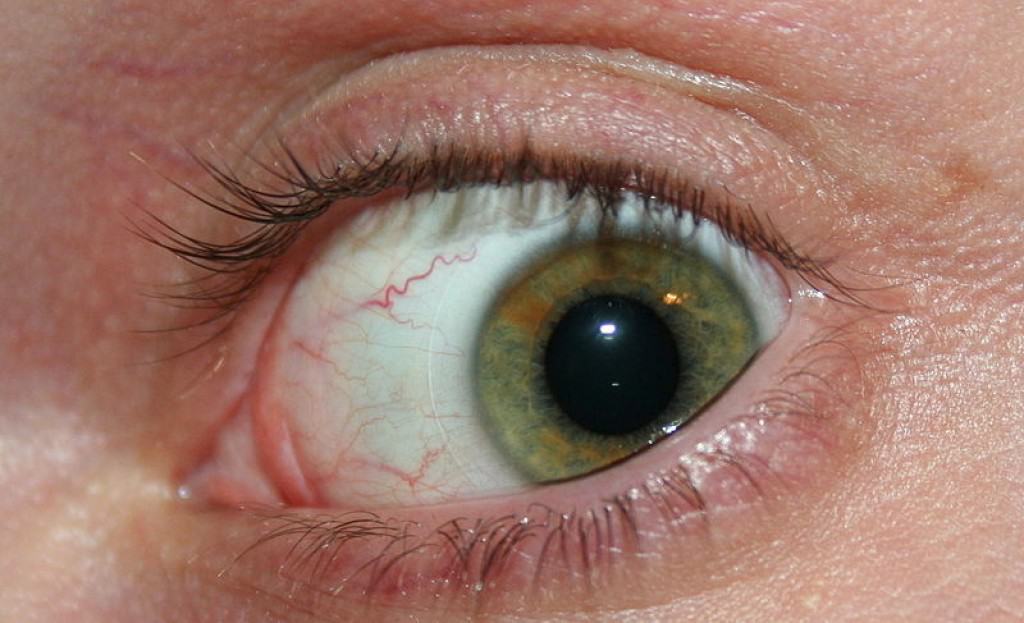
The eye has a protective covering that’s made of fluid. In an area with low humidity, this protective covering gradually dries up as the body tries to conserve water and make up for the water it is losing. This can lead to an infection in the eye as the protective layer has become too thin to offer protection.
Risk of respiratory infections
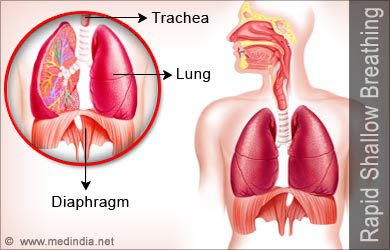
Many scientific studies have shown that the risk for respiratory infection is increased in areas with low humidity. Dry air allows the skin to break and crack more easily. Infections and disease can spread quickly through these cracks. Respiratory tracts are dry. The nose has a protective amount of mucus that prevents dust and harmful bacteria from getting into the respiratory tract. When the humidity is low, this mucus dries up. When this happens, dust and other bacteria get into the respiratory tract. These particles can cause different problems, ranging from frequent sneezing to respiratory infections.
Shallow breath

Low humidity causes shallow breathing. The lack of water in the air creates friction in the lungs. Without an adequate level of moisture, the body can be tricked into thinking it isn’t receiving enough oxygen. It could lead to an asthmatic attack.
Water loss
It is said that two-thirds of the earth is made up of water and 75 percent of the body is made of water. Our daily activities and our bodily functions use this water. When our bodies find that they lack fluids in the atmosphere to perform these tasks, they borrow them from other places. This process leads to water loss, which could lead to dehydration, which could result in a stroke and other health complications. If you are living in a low humidified area, try to get a whole home humidifier to avoid all these complications.
Increases influenza transmission
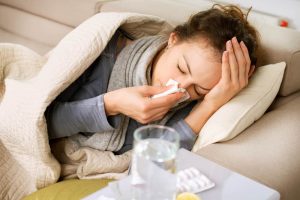
Low humidity facilitates influenza and flu transmission. Influenza and the flu have a dominant presence when moisture in the air is low. They can easily spread in these conditions. We all know that influenza and the flu are airborne. Low humidity aids their spread and increases the risk of contracting them.
Skin dryness
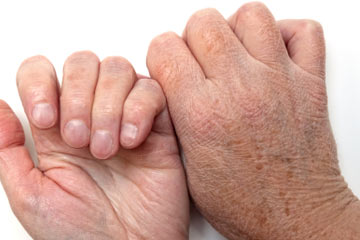
Although it is common knowledge that people who live in warm, dry areas often suffer from dry skin, you might not realize that this is a direct effect of the low humidity. However, dry skin is not merely an annoyance or cosmetic issue. It can lead to a variety of other health concerns.
Low humidity in the air can lead to a variety of health problems. Fortunately, you do have options. If you are concerned about the adverse health effects of dry air, consider buying a humidifier.


